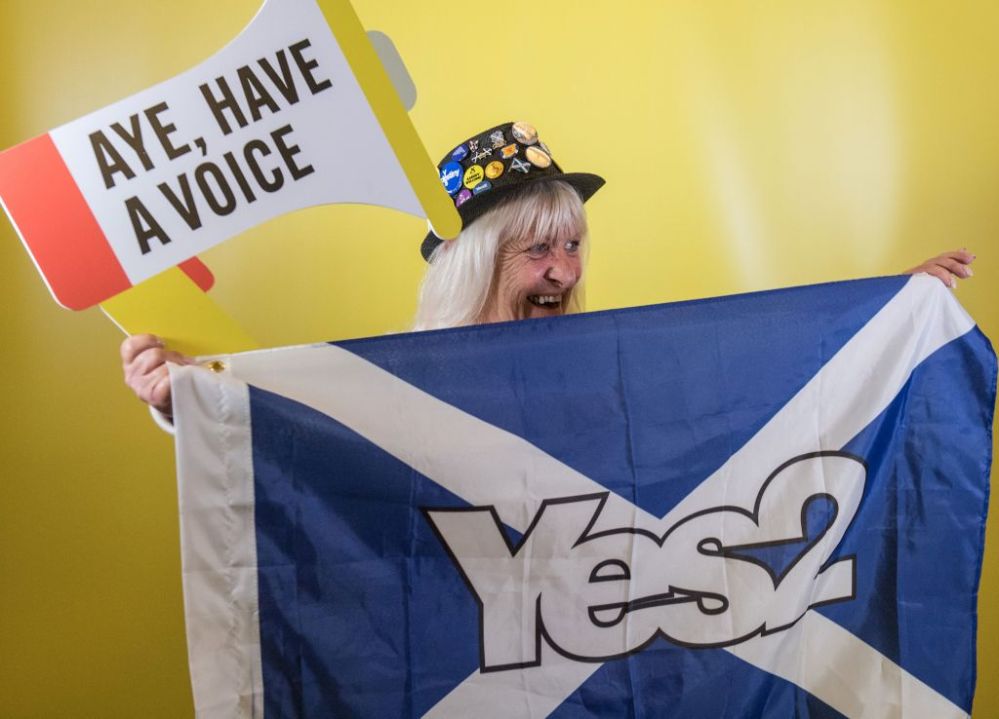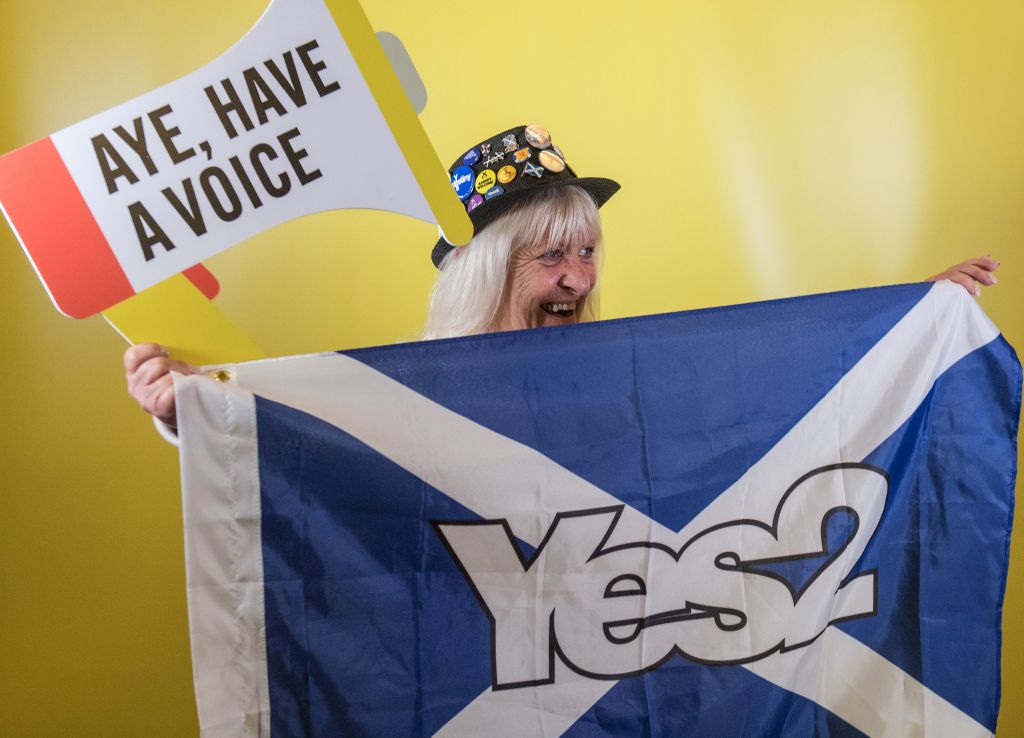Ash Regan came third place in the SNP’s leadership contest, but the party’s ‘rebel’ candidate is still fighting hard for her policies – and yesterday she saw a glimmer of success. The SNP has announced that on 24 June it will hold an ‘independence convention’ to take the place of a de facto referendum conference planned by former first minister Nicola Sturgeon.
Though she only received 11 per cent of the first preference membership vote, Regan has not sat still since her defeat in March. Last week, she questioned the new (and controversially appointed) minister for independence, Jamie Hepburn, on this in Holyrood:
‘I think that a cohesive, vibrant, creative cross-party wider movement is important for designing a successful campaign, for presenting that united front and then going on to win majority public support [for independence]. Would the minister agree with me that establishing an independence convention is not only imperative right now, it is also urgent?’
Hepburn was reluctant to commit too much at the time – and yet Regan’s persistence appears to have, at least partly, paid off. On Saturday, the party’s national executive committee (NEC) announced the convention and agreed that the Dundee event will be ‘solely focused on how Scotland is able to hold a legally binding independence referendum’. This suggests that more controversial methods – like Sturgeon’s de facto referendum idea – will not be pursued.
On the BBC’s Sunday Show this morning, Hepburn said that to continue to make the case for independence is ‘democracy in action’. On the practicalities of how this will work, things were less clear. Hepburn assured the BBC that no option was off the table as long as it was legal, but this begs the question: what options remain on the table?
‘I can certainly say independence will be front and centre and we will be considering exactly that: how do we lay out a manifesto which will include a commitment to take Scotland forward to independence and we will lay out exactly how we intend to do that as part of that platform.’
Jamie Hepburn said that no option to secure a referendum was off the table as long as it was legal, but this begs the question: what options remain on the table?
Famously, Regan wasn’t alone in her desire for cross-party discussion on independence; only last week, Alex Salmond of the pro-independence Alba party wrote to the SNP and Greens calling for a convention open to members of all pro-independence parties. The aim, Salmond said, would be to discuss the benefits of pushing forth ‘one agreed independence candidate in each Scottish seat at the next UK general election, on a manifesto commitment seeking a mandate to negotiate independence’. It is through effective collaboration with multiple pro-indy parties that Scotland can achieve independence, Salmond believes.
So have Salmond and Regan (who was widely believed to be Salmond’s preferred candidate in the leadership race) now got their way? Not exactly. While both politicians were in favour of a convention that was open to groups and parties that are part of the wider Yes movement, the NEC have decided that the meeting will be only open to SNP members.
Is this wise? Recent polling has shown that while support for independence remains steady, voters are less sure about the SNP. Widening the scope of the conference to include other pro-independence party members is not something the SNP would be particularly enthusiastic about, given its friction with Alba. But being seen to unify the increasingly fragmented pro-indy movement could work in the party’s favour.
Hepburn hasn’t ruled out working with other pro-independence parties completely, though:
‘The independence cause doesn’t belong to the SNP, it belongs to the wider independence movement. In advance of a general election, it is entirely right that we consider what our particular platform will be. Does that preclude us working with other parts of the independence movement? Of course not.’
Would Hepburn work with Salmond, then? He wouldn’t quite say.
The convention is proof that the party is ‘laser focused’ on making sure Scotland’s voters ‘have the opportunity to exercise their democratic rights’, says Keith Brown, the SNP’s deputy leader. ‘As the only mass membership political party in Scotland, we are calling on our members to help us secure that key vote that our country needs.’
But the ‘members only’ event has ruffled feathers, and not just because it will not allow groups from the wider Yes movement to be in attendance. Another independence rally hosted by All Under One Banner is due to take place in Stirling – on the 24 June. Already discussion has broken out amongst SNP members who had originally been planning to attend the Stirling march about whether they should make their way to Dundee instead. The first All Under One Banner rally this year was held in Glasgow on 6 May – and was noticeably shunned by all the SNP’s cabinet ministers, none of whom turned out. Asked why he was not in attendance as ‘the man whose job it is to take Scotland towards independence’, Hepburn replied: ‘We’re not going to win independence by marching and rallying alone.’
So while the Scottish National party attempts to prove that the quest for independence remains a top priority – and that the appointment of a minister for independence really is a necessity – the wider Yes movement appears to be falling further into disarray. With no credible, legal way of securing another referendum at present, it seems unlikely that this convention will achieve very much at all.








Comments